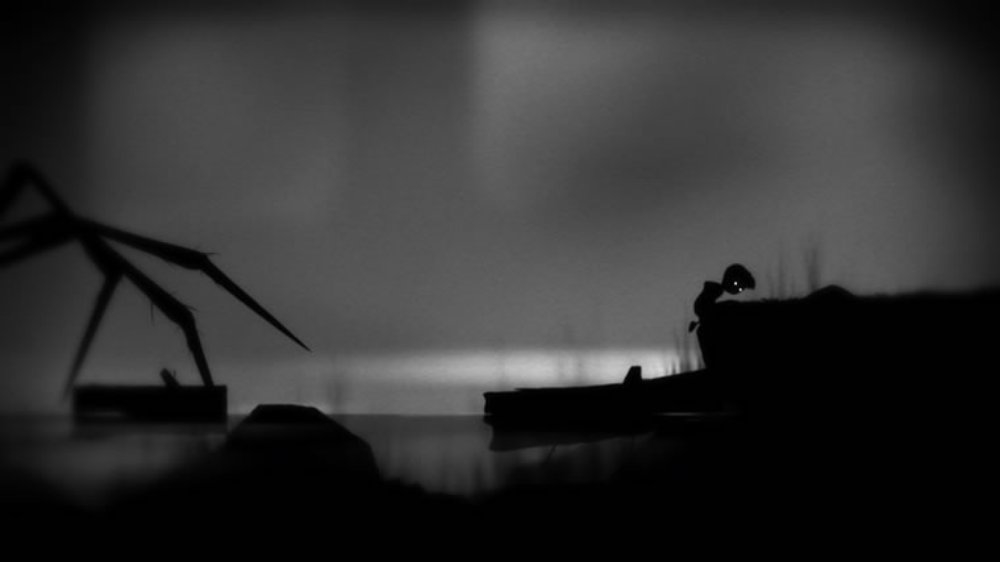Is much better than this
 |
| BLUE STREAK! AS HE SPEEDS BYYYYY |
But you're wrong. Whether it's a matter of taste or not I intend to challenge the modern age's obsessive focus on 3d games' graphics and super HD television shows. Please note that there are plenty of great 3D games and CGI movies which have awesome narratives, and I'm not commenting on that aspect of art. I'm just talking visuals.
The first and most apparent advantage that two-dimensional media has over its 3D counterpart is cost and ease of use. It's a simple matter of economics. 3D costs a lot more money even if we only consider the amount of time it takes to produce. This is why so many indie games are set in two-dimensional space. Additionally, 2D will age better than 3D 100% of the time. A prime example is Star Wars. The special effects used in episodes IV-VI were revolutionary. No one had done anything close to looking that good before. Despite how many aspects still look great today, not everything aged as well as rose colored glasses make some people think.
A great scene to be sure, but in terms of pure special effects it's nowhere close to what they can do today. And frankly, it can only get better. This is not to say that using three dimensions or CGI is an inherently bad thing for media, but 3D by its nature will always age worse than its 2D counterparts. Note there are some rare exceptions such as The legend of Zelda: The Windwaker whose 3D is essentially popup 2D, and in my opinion still holds up close to 10 years later.
The fact is that so much more can be done with cartoons. It is trivial to add whatever fantastic situation you would like and 2D provides for a more fully featured method of human expression.
But the practical nature of two dimensions is superseded by an even more important philosophical argument. Our focus on the growth of more realistic graphics, particularly in video games, represents a focus on imitation rather than beauty or inspiration. This, Plato tells us, is the most base form of aesthetics and not something we should desire. Plato believed there was an unchanging world of forms and that all the things you see around you are merely shadows of their perfect Form. Ergo, painting something just to reproduce its image moves us even further from understanding its true form. Realism in graphics means that visual representations of characters and scenery can never move beyond this idea of a copy of a copy. This even works in relation to obviously unrealistic concepts in games and movies which we expect to at least look like they actually exist.
In its ideal use, visual art should be seen in the same way as any other art. It should lift us up to a higher good. Plato literally believed in the existence of the form of Beauty and Good, and as a Catholic, I identify these transcendentals with God. Either way, 2 dimensional cartoons and video games are more suited to this purpose than their 3D counterparts. If not inherently, than at least in a practical sense.
Practically, it is obvious that our cultural mindset is now deadset on pushing 3D graphics toward simplistic realism.
 |
| Realism defined as "lots of brown and gray" |
2D is now incapable of competing on the "realistic" front, so it is implicitly understood that the decision to make a game in two dimensions is either for cost reasons or to make a statement. Or both. Take the game Limbo:
 |
| Also known as "Proof that silhouettes are always creepy" |
Even if you've never played this game before, just this screenshot gives you an immediate sense of what the game is all about. It's simplistic art style means that you don't immediately judge it for how well the graphics simply represent what they are. You judge it based on the immediate feeling it gives you, for better or for worse. This game is not memorable for it's story (virtually none), gameplay and controls (not the best), or multiplayer. It is memorable and critically acclaimed for its atmosphere. And that atmosphere would be difficult at best to pull off in a three-dimensional game, much less maintain that atmosphere a year or two after its release. Even if this particular game doesn't lift you up to God, it does expect you to move up and out of the "shoot nazi, repeat" mindset. I won't say it's impossible for a 3D game or CGI laden movie to be expressive and not just imitative (Shadow of the Colossus for example). However, it is extremely rare to find examples of well done visual art not done with 2D in video games. (Remember there is a distinction I'm making between "looks nice" and "well done")
tl;dr: 2D video games and cartoons are a better mechanism for producing visual artistic value than 3D and CGI. And even if you're looking at a game which is not intended to have any artistic value (e.g. Sonic on the Genesis) 2D still provides a more convenient medium to create imaginative and colourful worlds because "realism" is not expected.





